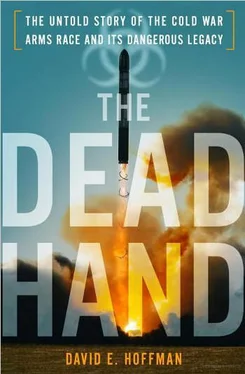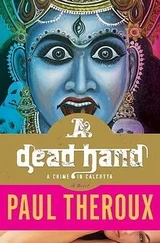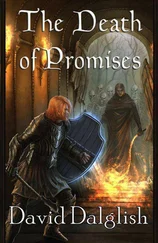At the Zarya compound, nine duty officers worked shifts in groups of three, two operators and one officer, squeezed into small rooms in a guest house about one hundred yards from Gorbachev’s lodge. The doors were always closed, and they took turns leaving for meals. When off duty, they left the compound and bunked several miles away at an isolated military lodge, which had only a local phone and no communications.
At 4:30 P.M. on Sunday, Gorbachev talked over the phone with Georgi Shakhnazarov, one of his leading advisers, who was at a nearby compound, about the forthcoming speech.
At 4:32 P.M., Lieutenant Colonel Vladimir Kirillov, the commander of the nuclear watch, was startled by a signal from his equipment that all communications links were down. The television in his room went off too. The only working line was a radio-phone connected to a government phone exchange in Mukholatka, a nearby small town. Kirillov called there and asked to be connected to the commanders in Moscow. They said it was impossible, they had no communications with anyone. At 4:35 P.M., another duty officer called Mukholatka and asked why there was no line to Moscow. “Accident,” he was told.
Ten meters away, in the same building as the duty officers, Chernyaev was in his small room, with the windows closed and the air-conditioning running. An assistant interrupted him to say a high-level delegation had arrived unexpectedly from Moscow and was entering Gorbachev’s building. “Something strange is going on,” the assistant said. “Did you know they cut off communications?” Chernyaev immediately picked up the phone to call Moscow. All three receivers at his desk—to the government exchange, the satellite line and the ordinary internal phone for the compound—were dead.
At 4:40 P.M., Kirillov was summoned out of the duty officers’ room. In the hall, he saw General Valentin Varennikov, commander of Soviet ground forces, standing with several other men. Varennikov asked about the status of the communications. Kirillov said the lines were dead. “That’s the way it should be,” Varennikov said, adding that it would remain so for twenty-four hours and that the president knew about it.
Kirillov went back to the room and continued to try to get in touch with Moscow. The government exchange at Mukholatka stopped answering altogether.
The Soviet nuclear forces were cut off from their civilian commander.
At 4:40 P.M., Gorbachev, wearing shorts and a sweater in his study, was interrupted by his chief bodyguard, Vladimir Medvedev, who said a group had come from Moscow, demanding to see him immediately. Gorbachev rarely invited visitors to his working vacation, and was baffled how they had penetrated the tight security around him. Medvedev said they had been let in by Lieutenant General Yuri Plekhanov, chief of the 9th Main Directorate of the KGB, responsible for Gorbachev’s overall protection. One by one, Gorbachev picked up the phones at his desk—the government line, the satellite line, the internal line and the city line. All dead. Finally, he picked up the red phone to the strategic nuclear forces. Silent. Gorbachev found Raisa, who was reading a newspaper on the veranda, told her what was happening and to expect the worst. She was shaken but remained cool, he recalled. They went into the nearby bedroom and called in their daughter, Irina, and her husband, Anatoly, and explained. They all knew Russia’s terrible history of leaders assassinated, imprisoned and exiled. The last reformer, Khrushchev, had been forced from office. “You must know,” Gorbachev told his family, “that I will not give in to any kind of blackmail, nor to any threats of pressure and will not retreat from the positions I have taken.” 23Raisa said, “It’s up to you to make a decision, but I am with you whatever may happen.”
When Gorbachev climbed the stairs to his second-floor study, he saw the visitors had already entered the small room. They were Varennikov, who had been in charge of troops in Vilnius; Boldin, Gorbachev’s trusted chief of staff; Oleg Shenin, a Politburo member; and Oleg Baklanov, the party secretary for the military-industrial complex. Plekhanov was also with them, but Gorbachev threw him out.
Gorbachev demanded, “Who sent you?”
“The committee,” they said.
“What committee?”
“The committee set up to deal with the emergency situation in the country.”
“Who set it up?” Gorbachev insisted. “I didn’t create it and the Supreme Soviet didn’t create it. Who created it?”
Baklanov said the committee—which became known as the State Committee for the Emergency Situation, known by its Russian acronym GKChP—was established because the country was sliding toward disaster. Baklanov added, “You must sign a decree on the declaration of a state of emergency.” The visitors demanded Gorbachev hand over his powers to the vice president, Gennady Yanayev. Baklanov said Yeltsin had been arrested, then corrected himself and said Yeltsin will be arrested. He also suggested that perhaps Gorbachev’s health had deteriorated terribly. He told Gorbachev that other members of the committee included Yazov, the defense minister; Pugo, the interior minister; Kryuchkov, the head of the KGB; Pavlov, the prime minister; and Yanayev. Most of them had been present in Boldin’s office before the Vilnius crackdown in January. Gorbachev seethed at the personal treachery. “I had promoted all these people—and now they were betraying me!” He refused to sign anything, and told the delegation of plotters to go to hell. Varennikov demanded Gorbachev’s resignation. Gorbachev insulted him by pretending not to remember his name. “Oh yes,” he said. “Valentin Ivanovich, is it?”
Gorbachev said he would not resign.
Boldin, Gorbachev’s longtime chief of staff, said, “Mikhail Sergeyevich, you don’t understand what the situation in the country is.” Gorbachev shot back, “Shut up, you prick! How dare you give me lectures about the situation in the country!” 24
Gorbachev swore at them as they left.
For the next three days, Gorbachev and his family were effectively prisoners of their own compound, tormented and sleepless. Gorbachev feared Baklanov’s statement about his health meant they might poison him, so the family and staff refused to accept food from outside and lived off compound supplies. Raisa took charge of looking out for their safety. Gorbachev strolled openly around the compound to show anyone who saw him that he was healthy. Armed guards had appeared at the garage, gates to the compound and the helicopter pad. The exit road was blocked by trucks. They listened to a tiny Sony transistor radio, and heard on the BBC that in Moscow the coup plotters had announced Gorbachev was ill and his duties taken by Yanayev. Gorbachev’s own security detail managed to rig up a television antenna and they saw a press conference in Moscow at which Yanayev appeared drunk. They heard that Yeltsin had called on people to resist the coup. “I was sure, quite convinced that the whole business could not continue for long—they would not get away with it,” Gorbachev said. He and Chernyaev walked outside, where they could not be bugged. Gorbachev called the plotters “agents of suicide” and “scoundrels.” Gorbachev found it hard to believe Yazov and Kryuchkov had betrayed him.
On Monday, August 19, Chernyaev found Gorbachev resting his back, lying on the bed, writing in a notebook. Chernyaev sat down next to him and began swearing about all that had happened in the last day. Gorbachev looked at him sadly, he recalled, and said, “Yes, this may not end well. But you know, in this case, I have faith in Yeltsin. He won’t give in to them, he won’t compromise. But that means blood.” Later in the day, Gorbachev, Chernyaev and Raisa huddled in a small pavilion at the beach, a place they hoped did not have KGB bugs. Raisa tore a few sheets of clean paper from a notebook and gave them to Chernyaev with a pencil. Gorbachev dictated a statement of demands for the outside world: turn on the phones and give me back the plane to return to Moscow and to work. In the middle of the night, they drew the curtains. With help from Irina and Anatoly, Gorbachev made a videotape denouncing the coup plotters. Raisa wrote in her diary, “Whatever happens to us, the people should know the truth about the fate of the President.” They took apart the videocassette and cut the tape into four pieces using manicure scissors. Each piece of tape was wrapped in paper and sealed with tape, hidden around the house until they could smuggle them out. The cassette was reassembled so it would not show that it had been taken apart.
Читать дальше












